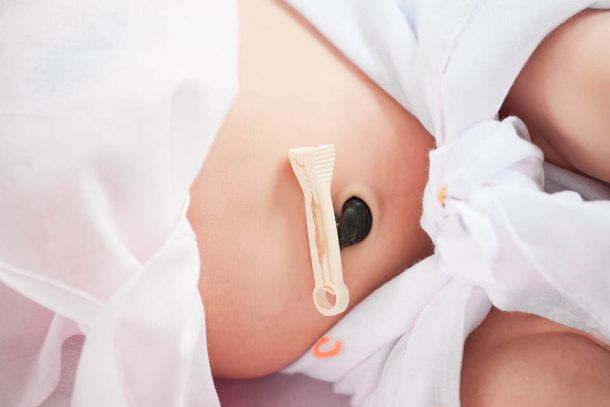Insurance for your baby, or an unnecessary expense? The pros and cons of cord blood banking.

Pros for cord blood collection
The baby’s blood that remains in the umbilical cord and placenta after the umbilical cord is cut is rich is blood stem cells – the building blocks for all sorts of different cells. These stem cells can be used to regrow blood and bone marrow cells to treat childhood leukemia and some other immune disorders. Stem cells also have the potential to treat - and even cure - ailments such as: heart disease, diabetes, stroke and spinal cord injuries, Parkinson’s, Alzheimer’s, burn victims and HIV and AIDS.
Saving and storing this cord blood is like biological insurance; you hope you never need it, (and experts say the chance you will is very low) but it is there if you do. And who knows what medical advances the future may bring?
Cons for cord blood collection
There is science – and then there is science fiction when it comes to umbilical cord blood and what the cells can currently be used for. Yes, the potential to cure many diseases with stem cells is there, but the science that can actually make it so, is not. And while leukemia is treated with stem cells, if a child were to develop the disease, his or her own cord blood would not be used because it would contain the same diseased cells. Cord blood from a sibling however, could be used which means - for insurance purposes - you need to collect it for every child you have.
Experts say the odds of ever having to use the banked cord blood are very low, and private cord blood banking is not cheap. It can run up to $1000 for the collecting and start-up then about $125 per year for 10 years. As such, I tell my patients that if money is a concern, you will probably get more for your money if you put it into a Registered Education Fund - your child has a much greater chance of going on to postsecondary education than he or she does of acquiring a disorder that is currently treatable with cord stem cells.
Are there any other options?
Blood that is not collected for private storage is discarded as medical waste. In March 2011 the Provincial, Territorial and Federal Health Ministers, in conjunction with the Canadian Blood Service, announced it would be establishing a national, publicly funded, umbilical cord blood bank. This will initially involve collecting donated cord blood in Ottawa hospitals in the next two years and will eventually involve hospitals in Toronto, Vancouver and Edmonton. There is already a public cord blood bank in Quebec.
If you choose, your cord blood can be collected and donated to the public blood bank at no cost to you. These stem cells could be used to treat other children with diseases like leukemia. It is important to note that this is donated cord blood - you will not be able to access your own cord blood through the publicly funded national bank – but you will have access to cord blood through the national bank. According to the Society of Obstetricians and Gynaecologists of Canada, the aim of a public cord blood bank is to make umbilical cord blood stem cells a public resource and provide a supply for medical treatments.
For more information about cord blood storage, contact the below companies and talk to your health care provider.
Insception Lifebank
1-866-606-2790
www.insception.com
info@insception.com
CReATe
1-888-494-0003
www.createcordbank.com
info@createcordbank.com
To Donate Cord Blood: Victoria Angel Registry of Hope
1888-868-0888
www.victoriaangel.org
educator@victoria.org
Cells For Life Cord Blood Institute
1-877-235-1997
www.cellsforlife.com
info@cellsforlife.com
